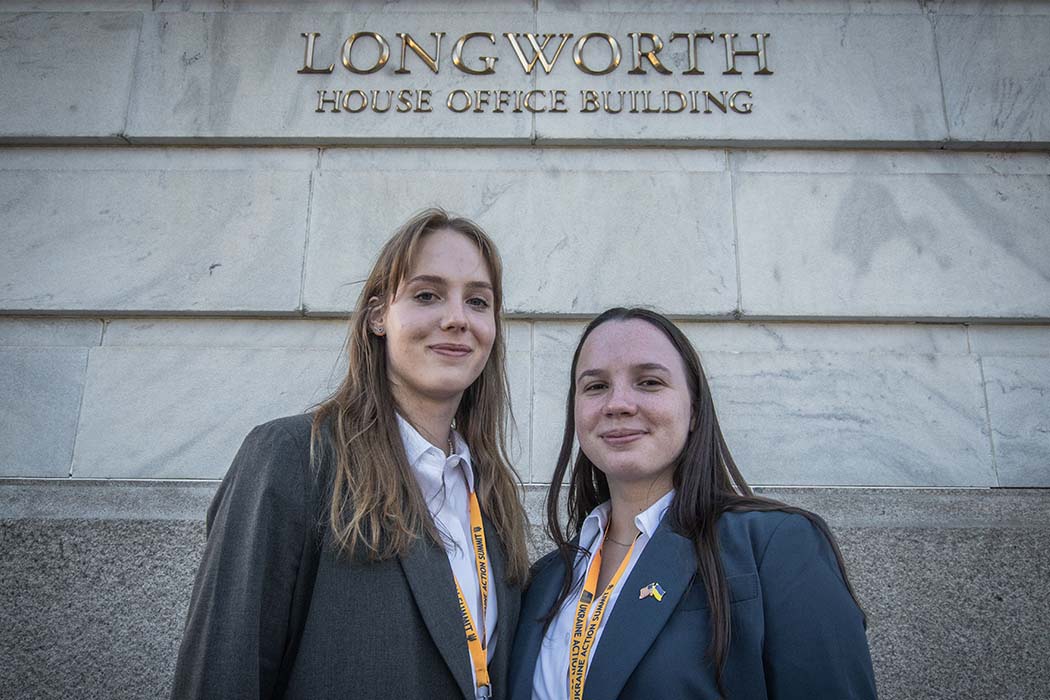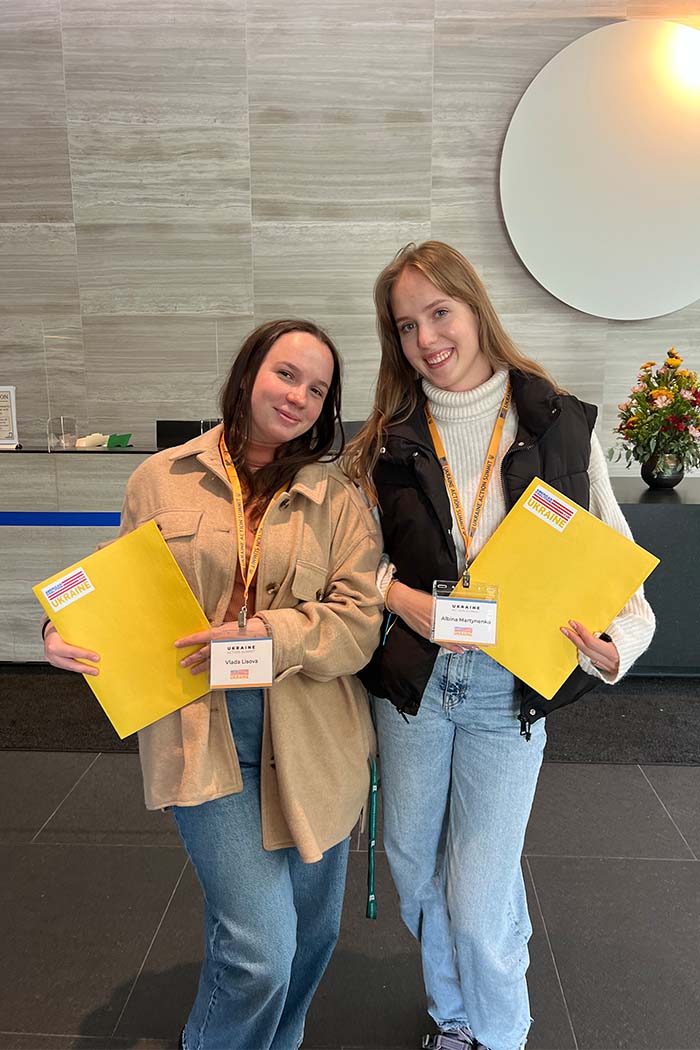Binghamton University students from Ukraine make their voices heard to nation’s leaders at D.C. summit
Ukraine Action Summit a chance for School of Management students Albina Martynenko and Vlada Lisova to share unique message

Standing on Capitol Hill, on their first trip to Washington, D.C., Albina Martynenko and Vlada Lisova hoped to paint for some of the nation’s top elected leaders a vivid picture of the Ukraine they grew up in. They wanted to share how, even as a nation at war, it’s home to a rich and beautiful culture.
For them, Ukraine is about the fun of “getting lost” in the city of Kyiv. It’s families who gather at a dinner table to enjoy some of their grandmother’s beloved borscht. And it’s even the simple appreciation of the intricate and colorful designs of the pysanky – traditional Ukrainian Easter eggs that also symbolize protection from misfortune.
This was the message Martynenko and Lisova, both Binghamton University School of Management (SOM) students whose families are still living in Ukraine, shared with national leaders during the recent Ukraine Action Summit.
“I’m really proud of being Ukrainian, and yes, we are in a state of war right now, but that doesn’t mean we’re not going to succeed,” said Martynenko, a business administration major. “Ukrainians are a strong, freedom-loving people, and as part of that, I’m not afraid of doing what I can to fight for a better future.”
Designed to convey to elected officials the necessity of continued U.S. assistance to Ukraine, the American Coalition for Ukraine organized the summit and involved 500 participants. The summit was held Oct. 22-24 and included, among other things, a series of panel discussions and meetings with some of the nation’s top representatives, including New York state’s U.S. Sen. Charles Schumer, Sen. Kirsten Gillibrand and Rep. Marc Molinaro.
“It’s such a dynamic world right now, with so many important problems, but we went to Congress because they should know just how important it is to continue supporting Ukraine,” said Lisova, an accounting major. “One of the best things about this summit was seeing the diversity of people who participated, the range of age groups and even people from other countries. That shows this war matters not just to Ukrainians, but everyone.”
In addition to meeting with elected officials, the SOM students stopped by other congressional offices to drop off bundles of pysanky, candies and T-shirts bearing the name of Binghamton’s Together for Ukraine group, which sponsored Martynenko and Lisova to attend the summit.
They also joined fellow summit participants to meet with Ukrainian Ambassador Oksana Markarova and members of the military to discuss a spectrum of issues related to Russia’s invasion of their native country.
One of the key skills Martynenko and Lisova developed from their summit experiences was conveying personal and potentially divisive messaging to different audiences on either side of the political aisle.
“For example, if Republicans aren’t happy about giving money to Ukraine, we’d elaborate on how the U.S. is utilizing frozen Russian assets,” Martynenko said. “When we spoke to Democrats, we tried to focus more on issues that aligned closer to what they’d be willing to support. It was a truly valuable experience, learning how to navigate yourself to get your points across.”
Back in Binghamton, Martynenko and Lisova plan to establish a Ukrainian club on campus. During a workshop for college students held during the summit, the Binghamton students connected with other groups that could assist them with speakers, trip planning and other resources for club activities.
“We’re also trying to help Ukrainian refugees through fundraisers and offer other assistance, including how to apply to colleges, especially by promoting Binghamton University,” Lisova said. “When we moved here, we found that there are many challenges for someone who hasn’t lived in this country their whole life, so anything we can do to help would be valuable.”
One standing rule for the club, Martynenko said, is that it should be open to anyone.
“We’d like people to know more about Ukraine as a country,” she said, “and who knows, maybe there’s someone here at Binghamton who would just like to be Ukrainian!”

